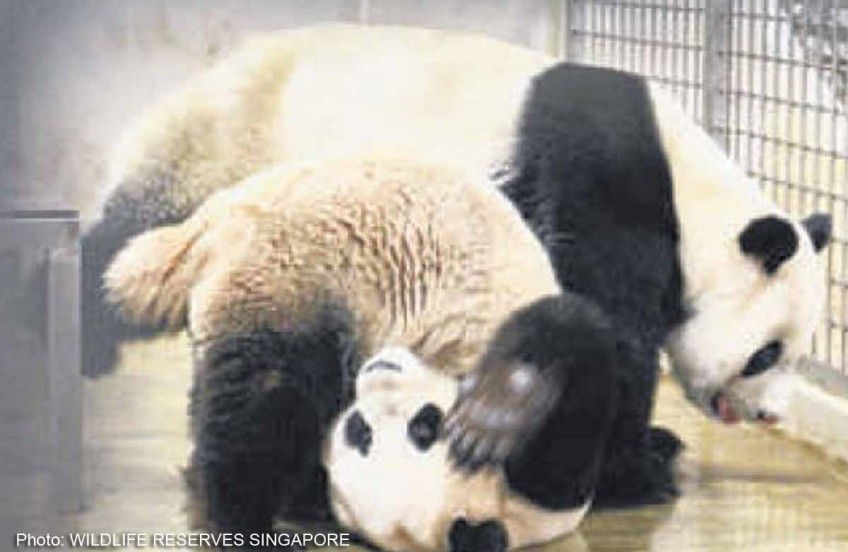Helping S'pore's panda couple become parents

It's so hard to make babies these days - as Kai Kai and Jia Jia will tell you.
The two pandas tried to mate, but it did not work out.
Now, Jia Jia has been artificially inseminated but doctors are waiting to see if it works out as Kai Kai's sperm sample was of poor quality.
The panda pair moved to Singapore in 2012 but it was only on April 5 that seven-year-old male Kai Kai started bleating and scent-marking to attract Jia Jia, six, which showed the first signs of being in heat on April 5.
The two pandas, which have separate enclosures, were finally brought together on Friday evening.
But Kai Kai, while enthusiastic, did not seem to know what to do. "The 40-minute session did not appear to be successful," said Serena Oh, assistant director of veterinary services at Wildlife Reserves Singapore.
"A decision was made to carry out artificial insemination to increase Jia Jia's chances of conceiving."
It has been a hard slog.
Since last November, to trigger the pandas' breeding cycles, River Safari's keepers and vets have regulated temperature and daylight hours in the exhibit to simulate the transition from winter to spring in the pandas' homeland in Sichuan, China.
The animal is notoriously tough to breed.
Female pandas have only one reproductive cycle a year, in which they are fertile for only 24 to 36 hours.
There are only 1,600 giant pandas left in the wild in China and 300 in captivity around the world.
The artificial insemination on Jia Jia has been given a 20 per cent to 50 per cent chance of success.
"In three months, we will conduct ultrasounds to determine if she is pregnant," said Dr Oh, who added that the gestation period for a panda is typically five months, resulting in one or two cubs.
limjess@sph.com.sg

Get MyPaper for more stories.